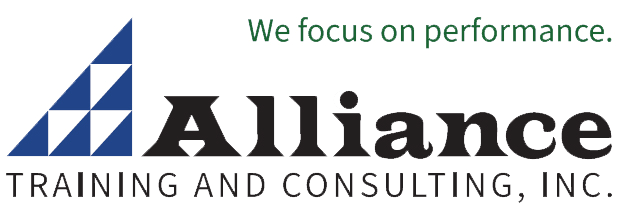Sexual Harassment IQ Quiz Answers
By: Murray Brookman
1. An employer will not be liable for sexual harassment committed by managers or supervisors as long as the employer is not aware of the conduct.
False (An employer will be liable for sexual harassment committed by managers or supervisors with direct or successively higher authority over the victim, regardless of whether they are aware of the conduct).
2. It is not unlawful harassment for a manager or supervisor to assign unfavorable work duties only to women.
False (The act of assigning unfavorable work only to members of a certain gender is a form of discriminatory treatment and may be considered a hostile act that has the effect of creating a hostile work environment for employees of that particular gender).
3. To bring a lawsuit for sexual harassment, a victim does not need to show that he or she suffered a monetary or economic harm, such as being fired or demoted.
True (Unwelcome sexual conduct that unreasonably interferes with the ability of a person to work or that creates an intimidating, hostile or offensive working environment can constitute sexual harassment, regardless of whether any monetary or economic loss has occurred).
4. It is unlawful for a man to sexually harass another man because of his gender.
True (Same-sex harassment violates the law).
5. Quid pro quo sexual harassment (e.g., promising favorable working conditions in return for sex) can be committed by managers, coworkers, vendors and even customers.
False (Only supervisors or members of management with authority to effect an employee’s working conditions can engage in quid pro quo harassment).
6. If an employee does not immediately complain about offensive behavior, the behavior is probably welcome and not harassment.
False (An immediate complaint strongly suggests that conduct is unwelcome. However, an employee’s delay in complaining does not necessarily indicate that conduct is welcome).
7. An employee who joins in sex jokes or sexual banter in the workplace may be a victim of sexual harassment.
True (Although an employee’s participation may indicate welcomeness, it does not automatically follow that the employee was asking to be sexually harassed).
8. An employee who consents to a supervisor’s sexual advances can state a claim for sexual harassment.
True (An employee may consent to a supervisor’s sexual advances but still consider the behavior to be unwelcome).
9. An employer may set higher standards of conduct for their employees than the law requires.
True (Not only can an employer set higher standards, it should).
10. Abusive behavior aimed at one's sex that is not “sexual” in nature (e.g., a supervisor who is constantly rude to female employees and tells them that they are “dumb broads”) can be sexual harassment.
True (Abusive conduct that is directed only at employees of one gender can violate Title VII).
11. A person who works in an office where sexual harassment occurs, but to whom harassment activity is not directed, may still sue the organization for sexual harassment.
True (Sexual or gender-based conduct does not necessarily need to be directed at the person making a sexual harassment complaint).
12. A manager’s threats to retaliate against a subordinate if he or she refuses sexual advances may constitute sexual harassment even if the threats are never carried out.
True (If the threats are sufficiently severe and pervasive, they may constitute sexual harassment).
13. A romantic relationship between a manager and his or her subordinate is sexual harassment.
False (Manager-subordinate romances are not necessarily sexual harassment, but they are dangerous).
14. An employer that has an anti-harassment policy will avoid liability for sexual harassment committed by a victim’s coworker.
False (An anti-harassment policy is necessary, but standing alone, will not completely shield an employer from liability).
15. Managers and supervisors can never be personally sued for sexual harassment.
False (In some states, supervisors and managers can be held personally liable for conduct that violates Title VII and/or state law. In addition, managers and supervisors can also be held liable if their conduct is found to be a common law tort, such as assault or battery).
16. An employer should address a complaint of sexual harassment that allegedly occurred several years ago.
True (Although the victim can no longer bring their complaint to a government agency or sue in court, the complaint should serve as a warning that similar behavior may still be occurring or may be repeated).
17. An employer should require a person who complains of sexual harassment to provide a written statement concerning the matter.
False (Although an employer should ask for a written statement, it should not be required. If the complainant refuses, or is unable, the employer should still investigate).
18. If a victim of sexual harassment asks a manager or supervisor not to tell anyone about the sexual harassment incident, the supervisor should not take further action.
False (Once an employer has been made aware of conduct that may constitute sexual harassment, it must investigate and promptly take appropriate action).
19. If a supervisor sees that an employee has posted sexually explicit posters in his or her work area, but nobody has complained about it, no further action is required.
False (An employer’s inaction means tacit approval).
20. A supervisor who touches an employee in a sexual manner only one time may be guilty of sexual harassment.
True (Even just one single incident of unwanted touching can be sufficiently offensive to be sexual harassment).
© 2015 Alliance Training and Consulting, Inc.
Does your organization need training on preventing sexual harassment? Alliance Training and Consulting, Inc. can bring harassment training to your organization and help you avoid costly lawsuits and liability within your organization. Call us today toll free at 877-385-5515 for more information.
View our Harassment Training Courses
